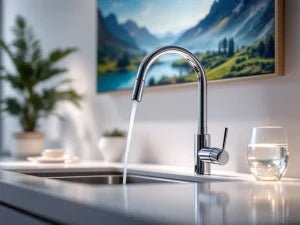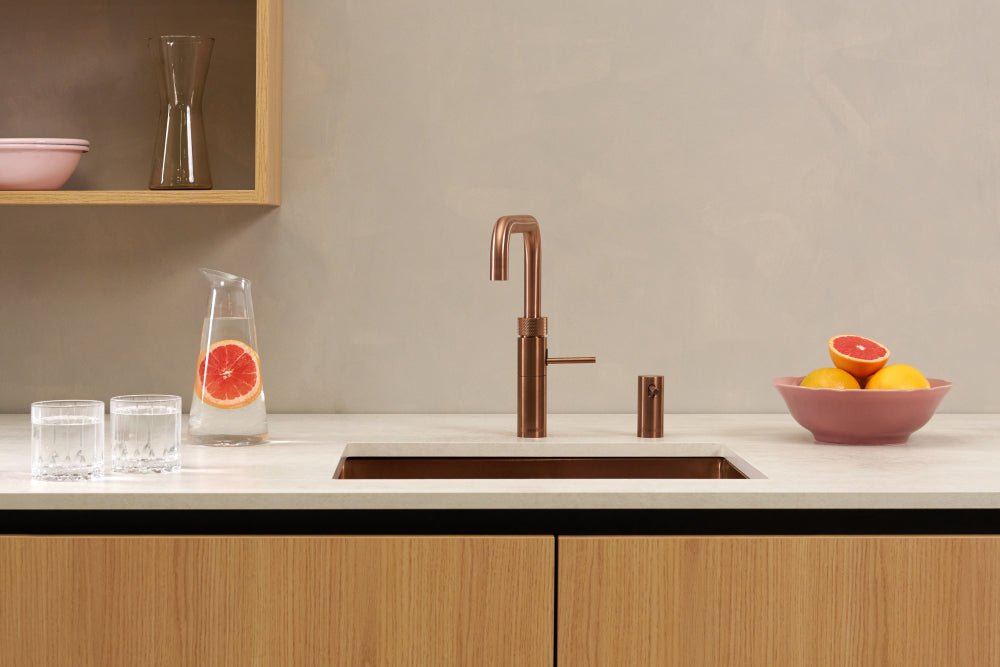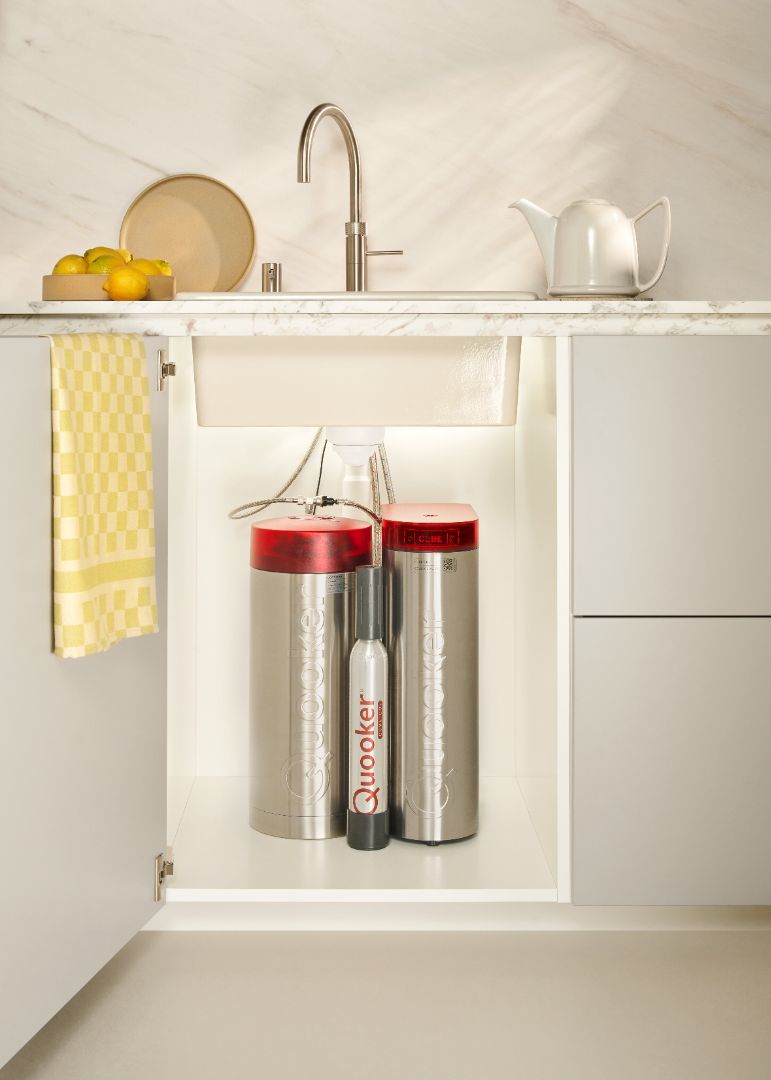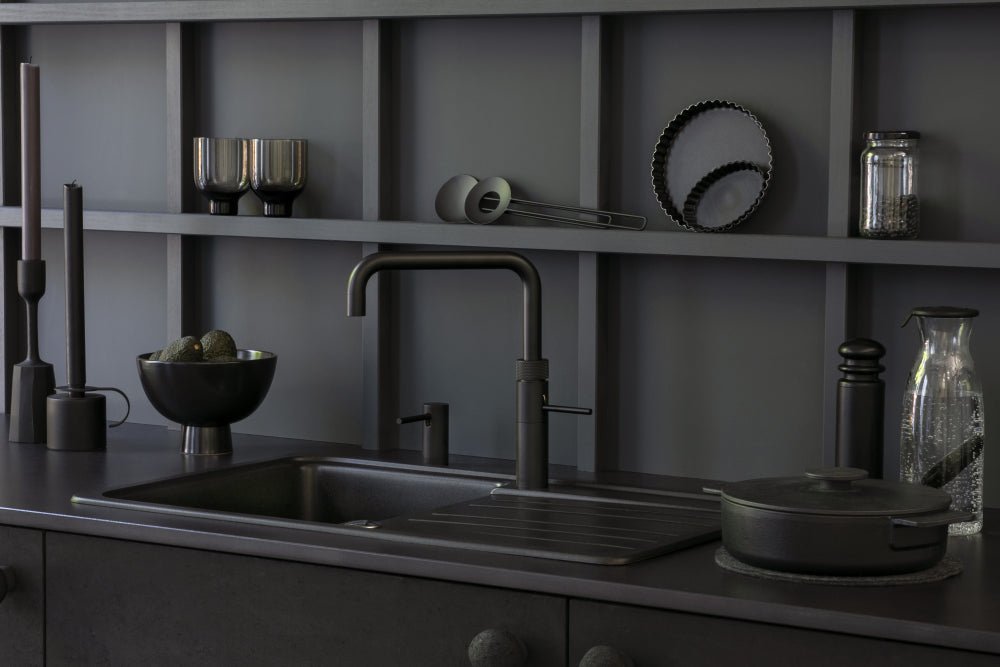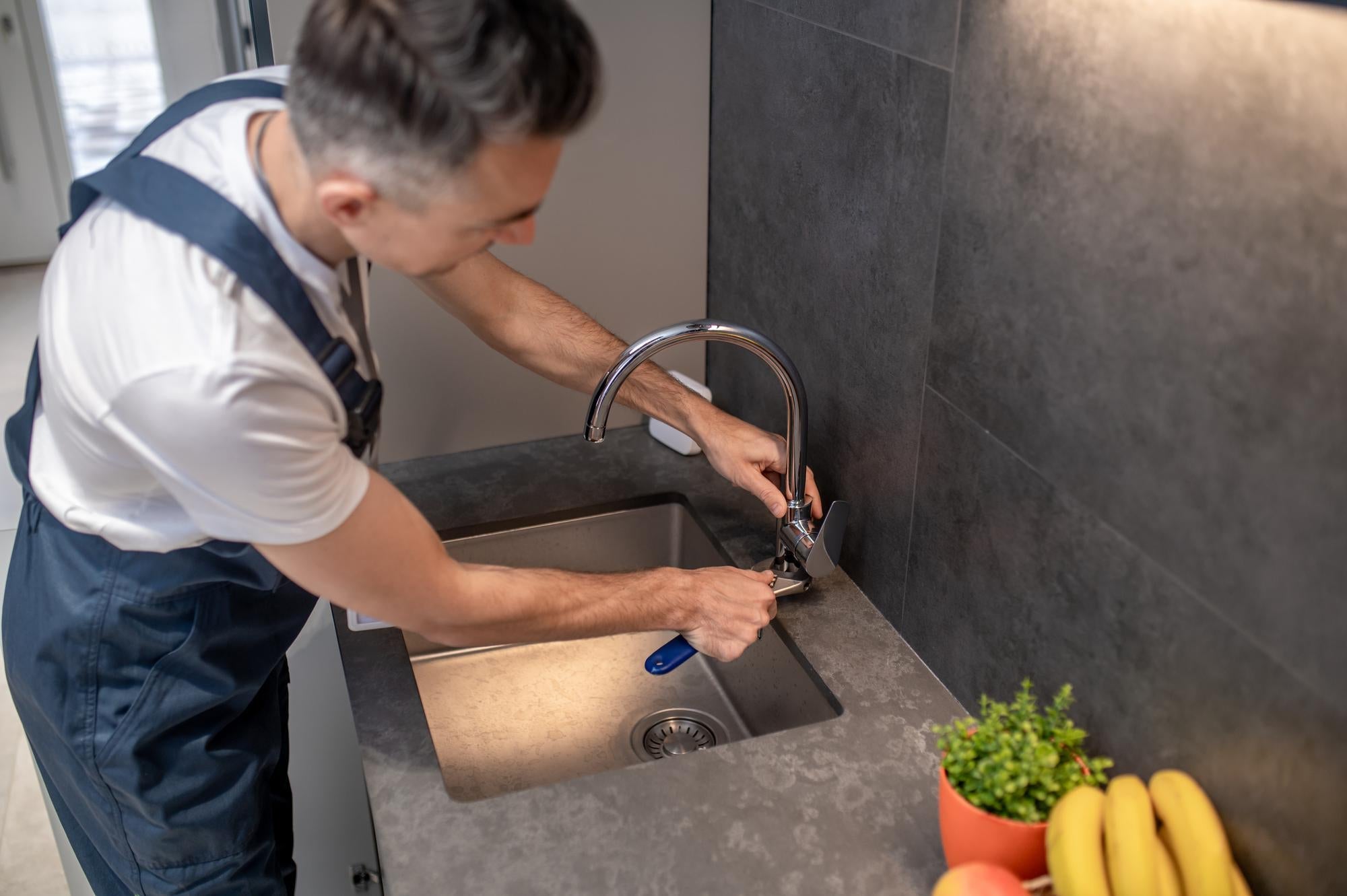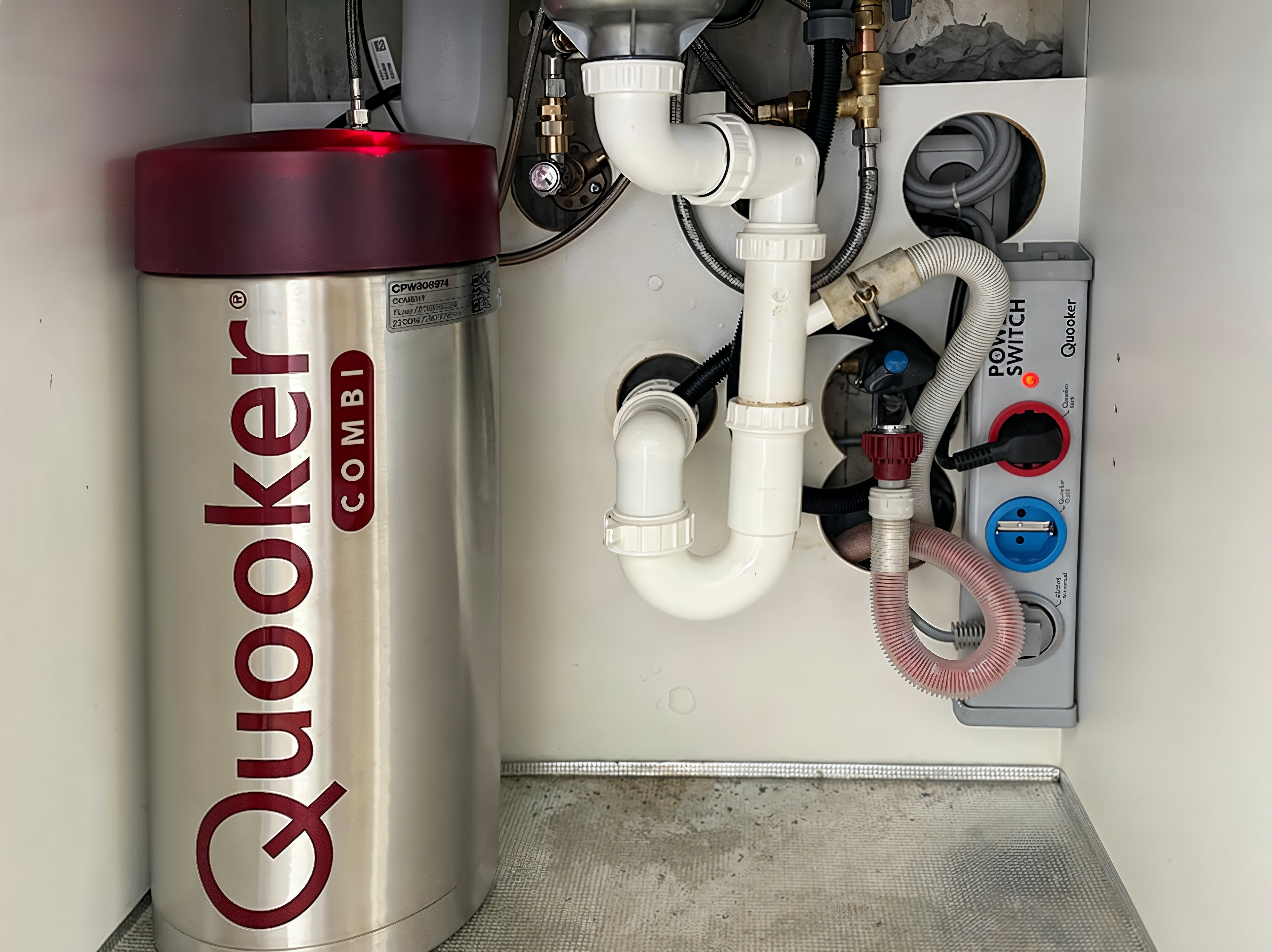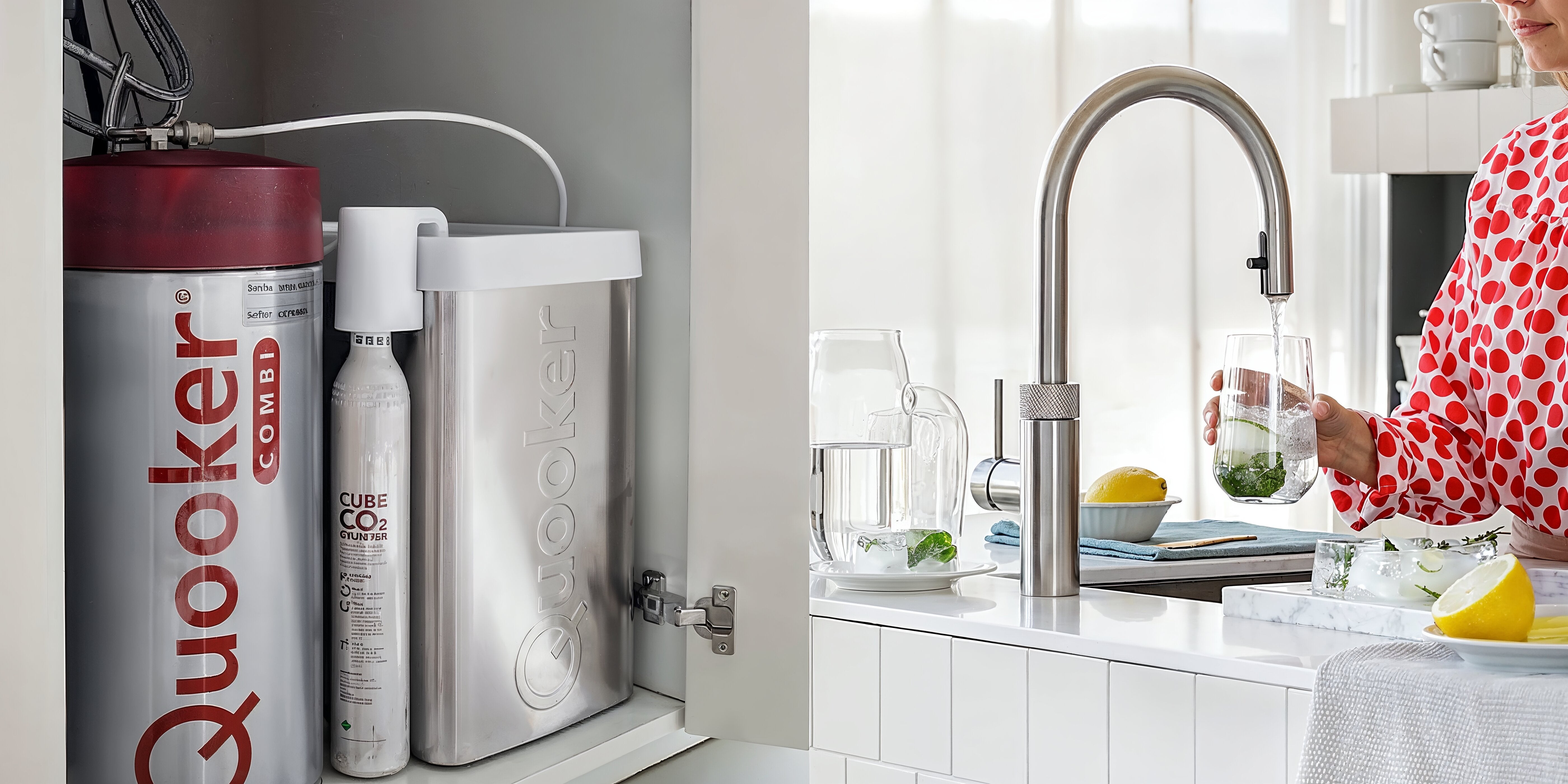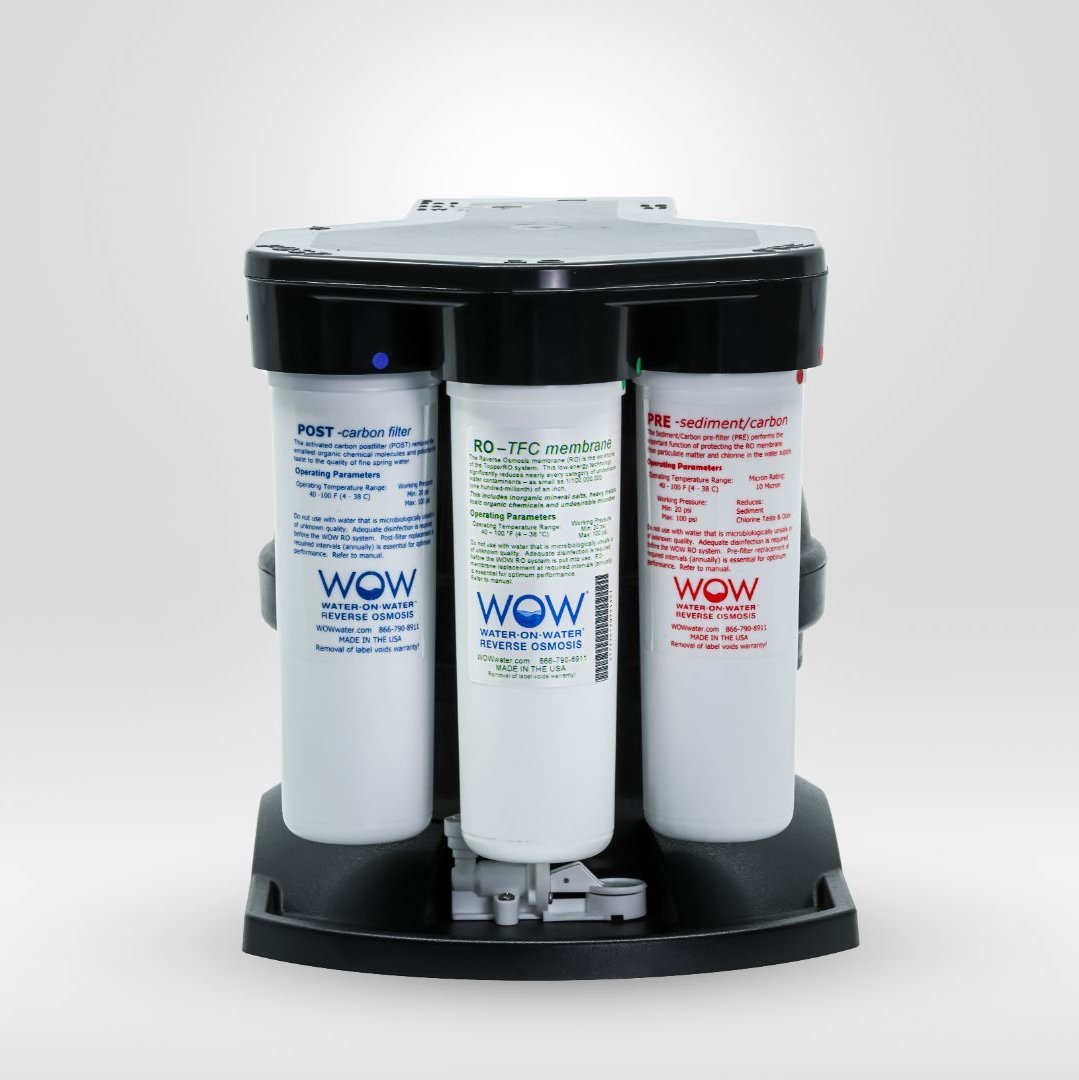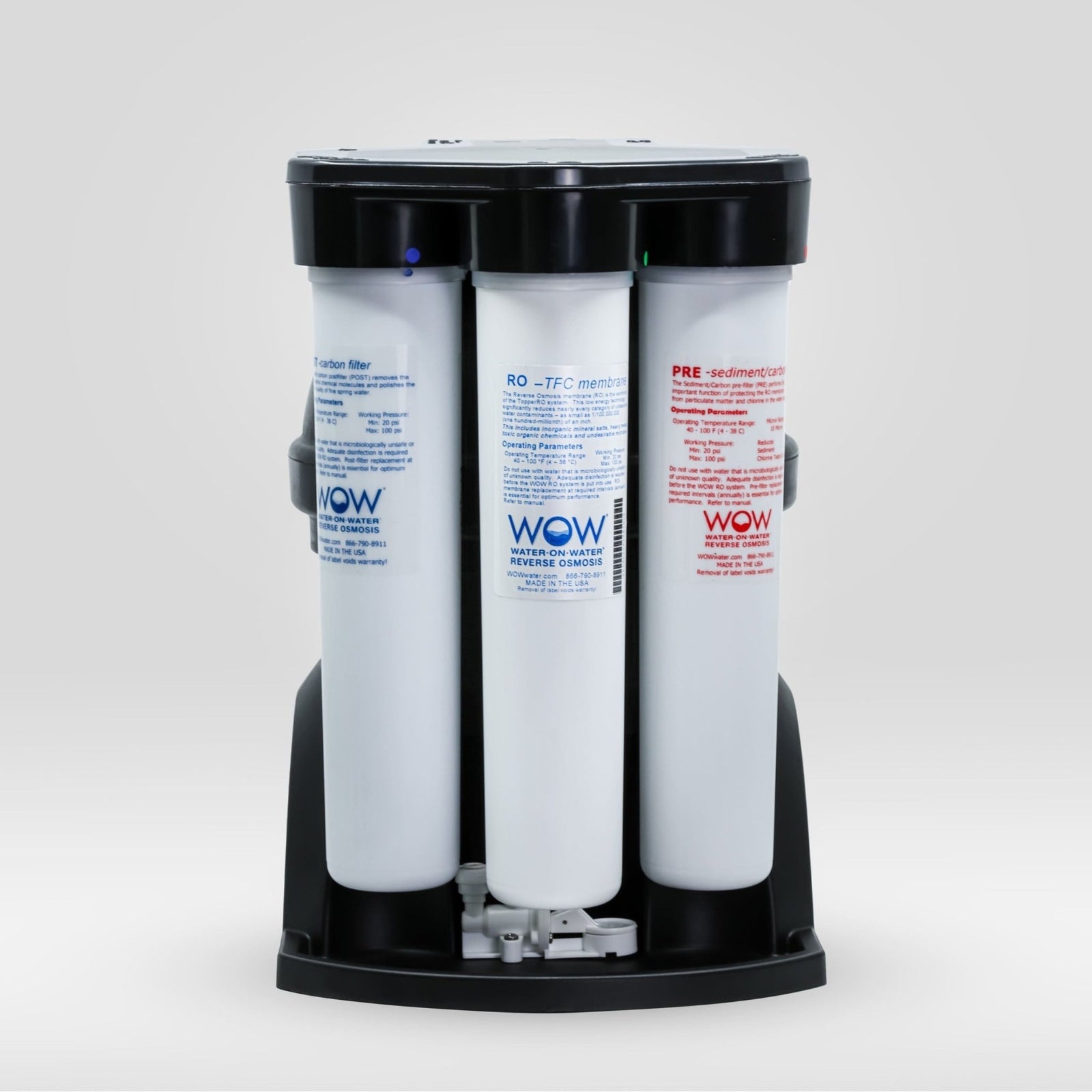Saving money on clean drinking water starts with making smart choices for your household. The average Dutch family spends hundreds of euros annually on bottled water, while home water filter systems offer a permanent solution that delivers significant long-term savings. By switching to an advanced filtration system like reverse osmosis technology, you can save up to 90% on your annual drinking water costs.
Why does clean drinking water cost so much money?
The cost of clean drinking water quickly mounts due to several factors that are often overlooked. An average family spends between €500 and €1,200 per year on bottled water, depending on consumption patterns and brand preferences.
The biggest cost items for bottled water are:
- Transport and distribution (30-40% of the price)
- Packaging materials and production (20-25%)
- Marketing and brand positioning (15-20%)
- Retail margins and VAT (20-25%)
- The water itself (only 5-10%)
Home water subscriptions seem practical, but the monthly cost ranges from €30 to €80, which amounts to €360 to €960 per year. In addition, you often pay a deposit, delivery fee, and water cooler rental. These hidden costs make home delivery more expensive than it initially appears.
The environmental impact is an additional cost that is passed on indirectly. Plastic bottles cause transport emissions, waste disposal costs, and recycling processes, all of which contribute to the final price. With a home water filter system, you eliminate these intermediate costs completely.
How much does a water filter system save per year?
A water filter system delivers substantial savings that recoup the initial investment within 12 to 18 months. For an average family consuming 8 liters of filtered water daily, the annual costs are as follows:
| Water source | Annual costs | Cost per liter |
|---|---|---|
| Bottled water (branded water) | €876 | €0.30 |
| Water subscription | €720 | €0.25 |
| Reverse osmosis system | €95 | €0.03 |
The initial cost of a high-quality reverse osmosis system ranges from €400 to €800, depending on the capacity and additional features. Annual maintenance costs are limited to filter replacement, which costs approximately €80 to €120. This represents a savings of at least €600 per year compared to bottled water.
Practical examples show that families who switch to filtration recoup their investment within 8 to 14 months. A family in Amsterdam who previously spent €70 per month on bottled water now saves €740 per year with their filter system. After deducting maintenance costs, they save €620 annually.
What are the cheapest alternatives to bottled water?
There are several affordable options for replacing bottled water, each with its own advantages and disadvantages. The most cost-effective alternatives are:
Water filter jugs (€20-€50 purchase):
- Advantages: Low purchase price, no installation required
- Disadvantages: Limited filter capacity, only basic purification
- Annual costs: €60-€100 for filters
Faucet filters (€30-€150 purchase):
- Benefits: Instantly filtered water, easy installation
- Disadvantages: Lower degree of purification than advanced systems
- Annual costs: €40-€80 for filters
Reverse osmosis systems such as The Source (€400-€800 purchase):
- Benefits: Removes up to 99% of unwanted substances including PFAS and pharmaceutical residues
- Disadvantages: Higher initial investment
- Annual costs: €80-€120 for filters
When choosing between these alternatives, it's important to consider more than just the initial price. A reverse osmosis system offers the best long-term value for money, especially when you factor in the superior water quality and health benefits.
How do you reduce water consumption without losing quality?
Efficiently using filtered water starts with conscious consumption habits. By using your filter system wisely, you can save both water and money without compromising quality.
Practical water-saving methods:
- Fill reusable bottles in the morning for the whole day
- Use filtered water only for consumption, not for cleaning.
- Install a three-way valve for efficient water use
- Store filtered water in glass carafes in the refrigerator
- Plan to filter cooking and drinking water at the same time
Maintaining your filter system plays a crucial role in its longevity and efficiency. Replace filters according to the recommended schedule—usually every 6 to 12 months. A well-maintained reverse osmosis system produces up to 500% less wastewater than older systems, directly contributing to lower water bills.
By using the storage tank in modern systems, you can filter water during off-peak hours when water pressure is optimal. This increases efficiency and extends the filter's lifespan by 20-30%.
Top ways to save on drinking water
The most effective ways to save water combine smart investments with conscious water use. For immediate savings, you can start by eliminating bottled water and switching to a filtration system appropriate for your household size.
Short term savings (within 3 months):
- Stop buying bottled water: save €50-€100 per month
- Install a basic faucet filter: investment recouped in 2-3 months
- Use reusable water bottles: one-time investment of €20-€40
Long-term savings (after 1 year):
- Invest in a complete water filter system : save €600-€1000 per year
- Choose a maintenance subscription: 15-20% discount on filters
- Combine with energy-efficient appliances: save on electricity
For a family of four, a system with a daily capacity of 100+ liters is ideal. Smaller households can suffice with more compact systems. The investment in a high-quality filter system pays for itself within 12-18 months, saving you hundreds of euros annually.
Want to start saving on your drinking water? Consider switching to a certified water filter system that not only saves your wallet but also contributes to a more sustainable lifestyle. With the right choice, you'll enjoy pure, fresh water every day at a fraction of the cost of bottled water.
